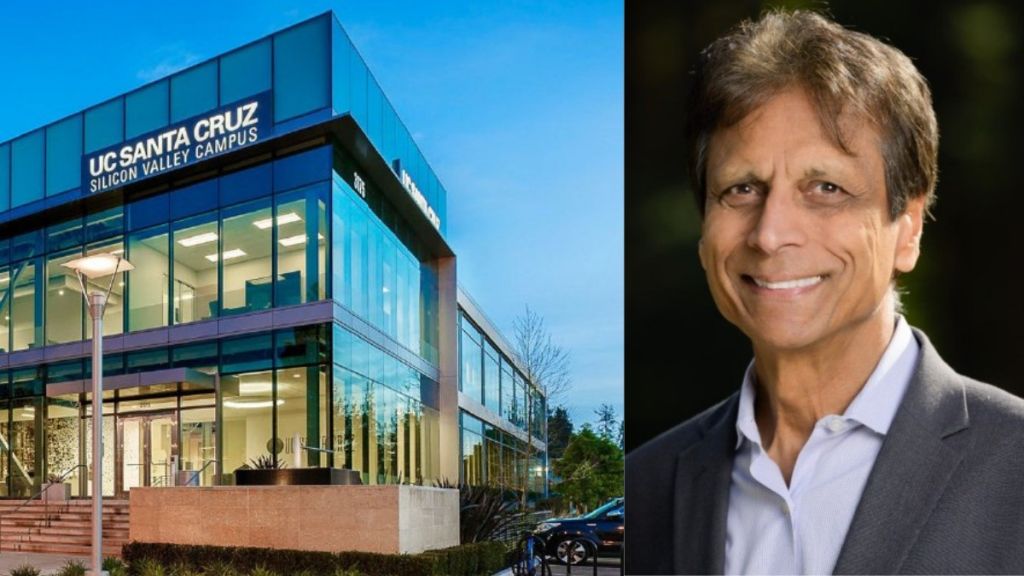
Every quarter, students from all over the world travel to university towns in the US to immerse themselves in the culture and gain valuable academic and work experience. Thanks to university and industry partnerships across the country, students in the bigger university towns such as Silicon Valley will find themselves in the midst of innovation, often learning from tech and business leaders who are shaping the global companies of the day.
The rewards of experiencing new cultures in academia as well as the professional internships include expanded academic horizons and strengthened professional resumes for international students. For international students, the challenge is how to take advantage of all the opportunities during their stay and, just as importantly, how to make it feel like home.
I was once an international student, and I remember what it was like to immerse myself in new surroundings, to encounter diverse perspectives, teaching methods, and social norms. Fortunately, in Silicon Valley, where the competition for jobs is stiff, the culture of sharing and supporting people with new ideas is exceptional. Students have the opportunity to learn from the industry leaders who are driving innovation in successful global companies. Throughout the country, these leaders teach in university courses like our own, speak at meetups, present at conferences, and organise hackathons. They are the industry partnerships that train the next generation.
Understanding US Academic Culture
The US education system, particularly within professional education departments in tech hubs like Silicon Valley and other academic centres across the country, emphasises the practical. The focus is on hands-on learning, active participation, and individual problem-solving. Students are expected to actively contribute to discussions, share their opinions, and freely ask questions to clarify doubts. This culture of open dialogue is a cornerstone of the American academic experience, fostering meaningful connections between students and instructors.
This competitive and dynamic learning environment is not a passive experience. U.S. academia emphasises the development of critical thinking and independent problem-solving skills rather than rote memorisation. Instructors embrace the active engagement of their students and create opportunities for their collaboration. For all of us, but particularly for international students who are navigating a new culture, soft skills such as communication, initiative, project management, and creative problemsolving are essential to professional success. Embracing these opportunities not only enhances academic success but also prepares students for future challenges, equipping them with the necessary skills for a global, fast-evolving world.
Networking and Professional Development
Silicon Valley, a global hub for innovation, offers international students a wealth of networking opportunities. However, these possibilities are not limited to just one region. Across the US, from the East Coast to the West, students can join numerous forums, meetups, and conferences that help them connect with professionals, mentors, and potential employers. Many of these events are affordable or even free, making them open to students at all levels. In regions like Silicon Valley, students enjoy collaborating on real-world projects. These connections can be game-changers, leading to internships, investments, job opportunities, and graduate programs. Networking with industry experts and peers opens doors to career advancement, making these events a crucial aspect of the U.S. educational experience for international students.
Resilience and WellBeing Enhancement
Cultural adaptation in the US can be overwhelming. Every international student brings unique strengths, interests, and learning styles to their academic journey, and prioritising mental health is crucial. Students in the U.S. have access to a wealth of counselling services and mental health resources to manage cultural and academic pressures. These services provide a safe and supportive environment to discuss personal challenges and promote emotional wellbeing and academic success. Engaging with instructors, attending campus events, and utilising career services can help international students feel more integrated into the community.
Growing Soft Skills
Many employers say critical soft skills are more difficult to teach than technical aptitude. The professional development departments at US universities that take a career-focused approach to teaching will help students balance their technical skills with essential soft skills such as communication, time management, and organisational leadership.
Cultural adaptation is a continuous process that demands resilience, active participation, and a willingness to embrace new experiences. By experiencing US academic and professional culture, prioritising well-being, and making the most of networking opportunities, international students will maximise their time in the US. Valuing the diversity around them and tapping into available resources supports academic success and helps forge meaningful connections in the vibrant atmosphere of US universities. We all need to stretch ourselves, learn to embrace these differences and pay attention to the many different ways people communicate and collaborate. Studying abroad changes a person. It is a powerful experience because students are learning on so many different levels new strategies for cultural and academic adaptation as they’re overcoming their own challenges and learning to thrive in new environments. I urge all students considering a visit to the US to choose a community that welcomes you and supports your dreams.
The author is the Dean of the University of California, Santa Cruz, Silicon Valley Professional Education